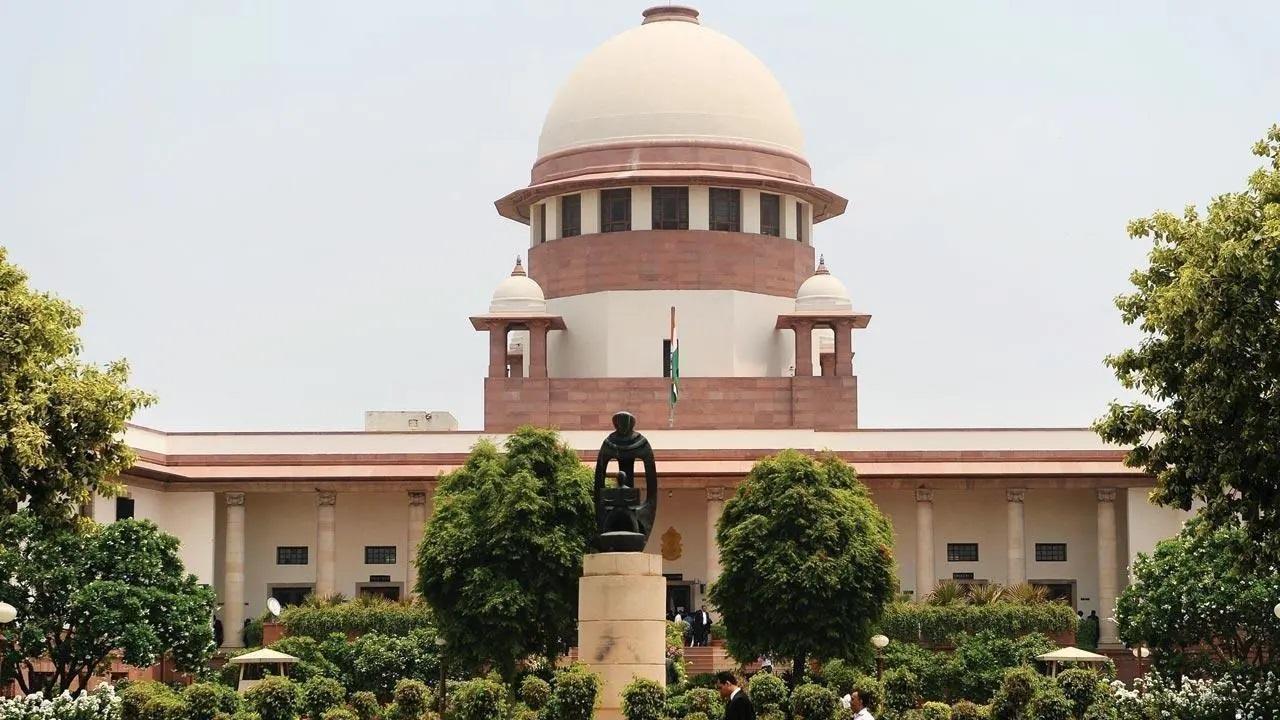The apex court observed that any law declared by it is "binding" on all stakeholders and the collegium system must be followed

Supreme Court of India. File Pic
The Supreme Court said on Thursday the collegium system of appointment of judges is the law of the land and comments against it are "not well taken".
ADVERTISEMENT
The apex court observed that any law declared by it is "binding" on all stakeholders and the collegium system must be followed.
The top court was hearing a matter relating to alleged delay by the Centre in clearing the names recommended by the collegium for appointment as judges to constitutional courts.
Observing that comments made on the Supreme Court collegium by the government functionaries are "not well taken", a bench headed by Justice S K Kaul asked Attorney General R Venkataramani to advise the government about it.
The collegium system has become a major flashpoint between the Supreme Court and the central government, with the mechanism of judges appointing judges drawing criticism from different quarters.
Union Law Minister Kiren Rijiju had on November 25 launched a fresh attack, saying the collegium system is "alien" to the Constitution. The bench, also comprising Justices A S Oka and Vikram Nath, said it expects the Attorney General to advise the government so the legal principles laid down by the apex court are followed.
It noted that 19 names recommended by the collegium were recently sent back by the government.
"How will this ping-pong battle settle?" the bench asked.
"Till the collegium system is there, till it is upheld, we have to enforce it. You want to bring another law, nobody stops you from bringing another law," it said.
The apex court said if a section of the society starts deciding which law to follow and which not to follow, then there will be a breakdown.
"When you lay down a law, you expect the courts to enforce it unless the law is set aside," the bench said.
"We may at the end say only this that the scheme of the Constitution stipulates the court to be the final arbiter of the position of law. The power to enact a law is with the Parliament. However, that is subject to scrutiny by the courts," it asserted.
The bench said it is necessary that all follow the law that has been laid down.
"Any law declared by this court is binding on all stakeholders. That is the only signal I want to send," Justice Kaul observed.
The bench said what has "troubled" the court is that there were many names pending for months and years, including some which were reiterated by the collegium.
It said when the high court collegium sends names and the apex court collegium clears them, they keep several factors in mind, including seniority.
The bench said the judgement by its Constitution bench on the collegium system must be adhered to.
"In the meantime, the collegium system coupled with the Memoradum of Procedure (MoP) must work as it exists, subject to any changes to be made," the bench said.
The bench has posted the matter for further hearing on January 6.
On November 28, the apex court had expressed anguish over the delay by the Centre in clearing the names recommended by the collegium for appointment as judges to the higher judiciary, saying it "effectively frustrates" the method of appointment.
It had said a three-judge bench of the apex court had laid down the timelines within which the appointment process had to be completed. Those timelines, it had said, have to be adhered to.
Justice Kaul had observed it appeared the government was unhappy with the fact that the National Judicial Appointments Commission (NJAC) Act did not pass the muster, but that cannot be a reason to not comply with the law of the land.
The apex court had in its 2015 verdict struck down the NJAC Act and the Constitution (99th Amendment) Act, 2014, leading to the revival of the Collegium system of existing judges appointing judges to constitutional courts.
The top court was hearing a plea alleging "wilful disobedience" of the time frame laid down by the apex court in its April 20 order last year to facilitate timely appointment.
On November 11, the apex court had expressed displeasure over the delay by the Centre in clearing the names recommended for appointment as judges and said keeping them pending is "something not acceptable".
It had issued notice to the Secretary (Justice) of the Union Law Ministry and Additional Secretary (Administration and Appointment) seeking their response to the plea.
The petition filed by the Advocates' Association Bengaluru, through lawyer Pai Amit, has raised the issue of "extraordinary delays" in the appointment of judges to the high courts as well as the segregation of the names, which is "detrimental to the cherished principle of the independence of the judiciary".
It has referred to 11 names which were recommended and later reiterated.
In its order in April last year, the apex court had said the Centre should appoint judges within three-four weeks if the Collegium reiterates its recommendations unanimously.
 Subscribe today by clicking the link and stay updated with the latest news!" Click here!
Subscribe today by clicking the link and stay updated with the latest news!" Click here!







